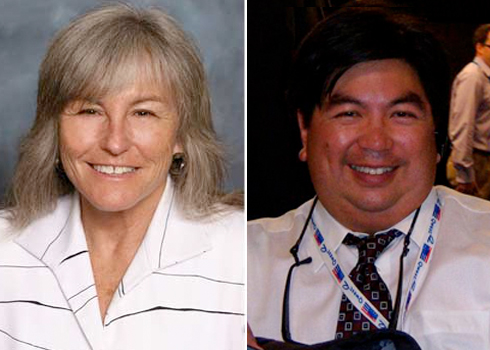Following a Bush-era move to stack the U.S. Commission on Civil Rights with conservatives, the bipartisan balance of the commission has officially been restored. Democratic appointees on the commission are planning to drastically change the direction of the federal agency, which while under conservative control spent nearly a year and a half examining the Obama administration’s handling of the New Black Panther Party voter intimidation case.
The commission is supposed to be bipartisan — the law stipulates that no more than four commissioners can be of any one party. But during Bush’s first term, two Republican commissioners switched their affiliation to independent to allow for the appointment of two additional Republican commissioners, which a Republican appointee later acknowledged was a move to “game” the system. One of those commissioners subsequently left the commission and the other, current Vice Chair Abigail Thernstrom, later switched her registration back to Republican, but subsequent appointments meant the commission remained GOP-leaning until this year.
Finally, on Friday, former Democratic commissioner Michael Yaki was reappointed to commission for another term, bringing the balance to four Democrats, two Republicans and two reliably conservative independents.
So what’s next for the commission? For one, their 2011 statutory enforcement report (which in 2010 focused on the isolated New Black Panther Party incident) has a much broader, and relevant, focus: the federal response to peer-to-peer violence and bullying.
The commission is holding a day-long briefing on peer-to-peer violence in K-12 public schools on May 13. The briefing will “examine bullying and other types of peer-to-peer violence where students are targeted due to their race, national origin, religion, disability, gender, or LGBT-status.” They’ll also look at jurisdictional issues and enforcement efforts from the Department of Education and Justice Department.
Roberta Achtenberg, a recent presidential appointee to the commission, told me in a recent interview that she’s “very interested in taking the commission in a new direction.”
Achtenberg said she wants the commission to focus staff time on an “affirmative, pro-active civil liberties, civil rights agenda.”
But Achtenberg, who former Sen. Jesse Helms (R-NC) famously referred to as “a damn lesbian” before she became first openly gay federal public official confirmed by the Senate, said she anticipates opposition to the commission taking up LGBT issues from conservatives who say taking up such issues goes beyond the commission’s mandate.
“Are they going to argue that? I suppose its possible they would argue that. First of all, the general counsel has validated our jurisdiction under Title IX,” Achtenberg said of the 1972 amendment to the Civil Rights Act which bans federal discrimination on the basis of gender.
“I suppose it is possible that they could assert that they’re not jurisdiction on a larger basis but I think we’re pretty clear that the commission always has had the authority to look at emerging issues and there is precedent for issues to have been examined by the commission in advance of them being embodied as protected classes in statute,” Achtenberg said.
“It may not be their preferred topic, but I think it’s pretty clear we have the jurisdiction to examine these issues,” Achtenberg said.
Yaki previously said that he plans to propose the Civil Rights Commission examine the rise of anti-Islam and anti-Arab discrimination. Actenberg also said that the commission would consider examining anti-Muslim activity. “I would expect that to be among the issues considered to be addressed in 2012,” she said.






